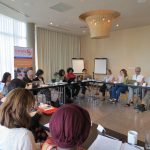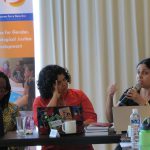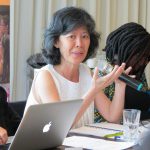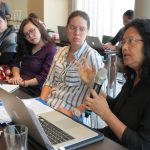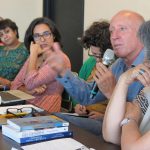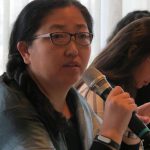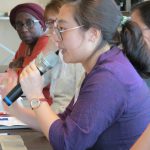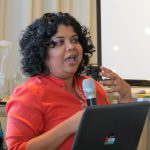DAWN convened a strategic dialogue with fellow activists, researchers, representatives of civil society organizations and social movements, to reflect and analyse together on critical challenges for feminist advocacy and mobilising at the current context.
The discussions that took place in Taipei in October 2017, began from a collective perception that we are living in a “tricky and fierce new world” that demands a pause for reflection and strategic thinking. The dominant neoliberal institutions present women’s empowerment as panaceas for faltering economic growth and development, while directing attention away from neoliberalism’s deep-rooted structural failures. Indeed, corporate power and the corporatization of the public sphere (nationally and multilaterally) are stronger than ever, limiting government’s fiscal and policy space, and undermining their responsibility for the protection and fulfilment of all human rights, and continuing their rapacious attack on planetary and local sustainability.
Hard-won advances in women’s rights are under threat as women’s bodies and sexual and reproductive rights are being challenged and attacked by anti-democratic agendas in multiple spaces – in homes, in workplaces, in public, including digital, spaces. In this global context, feminists are working collectively to critique and challenge the implications for gender equality, for the human rights of all people – and especially those most oppressed and economically, socially and politically subordinated, and are calling out the impacts on women’s bodies and lives.
The DAWN dialogue reflected on how rapid technological changes towards a new era of automation, robotization and artificial intelligence threaten to force economic and political structures and arrangements into new and precarious directions. These new directions demand new analysis and new forms of organizing and mobilizing. Access to a ‘mobile society’ may be perceived as an empowering strategy in some ways, but it also promotes further commoditization of more aspects of people’s lives, and reinforces structural inequalities under digital capitalism.
New forms of natural resources exploitation continue to emerge, and powerful global institutions and governments are often complicit, whether overtly or covertly. This often makes expressed commitments to inter-generational solidarity and to preserve Nature and the planet for upcoming generations seem like lip-service, even though it is possible to use the frameworks of the Sustainable Development Goals (SDGs) or the Paris Agreement to make governments accountable to some extent.
For our part, DAWN reaffirms its commitment to take part in the struggles for gender equality, economic, ecological and political justice, and the human rights of women and girls, and indeed of all oppressed peoples, through feminist analysis, advocacy and movement building. The results of this strategic meeting will inform DAWN’s research, advocacy and mobilising in the upcoming years, in its vision of building development alternatives from the South that are rights-based, gender-aware, people-centered, and sustainable.

